Gilbert: It's never ideal to fall ill before a big objective
Belgian on Jungels, Terpstra and the Ronde
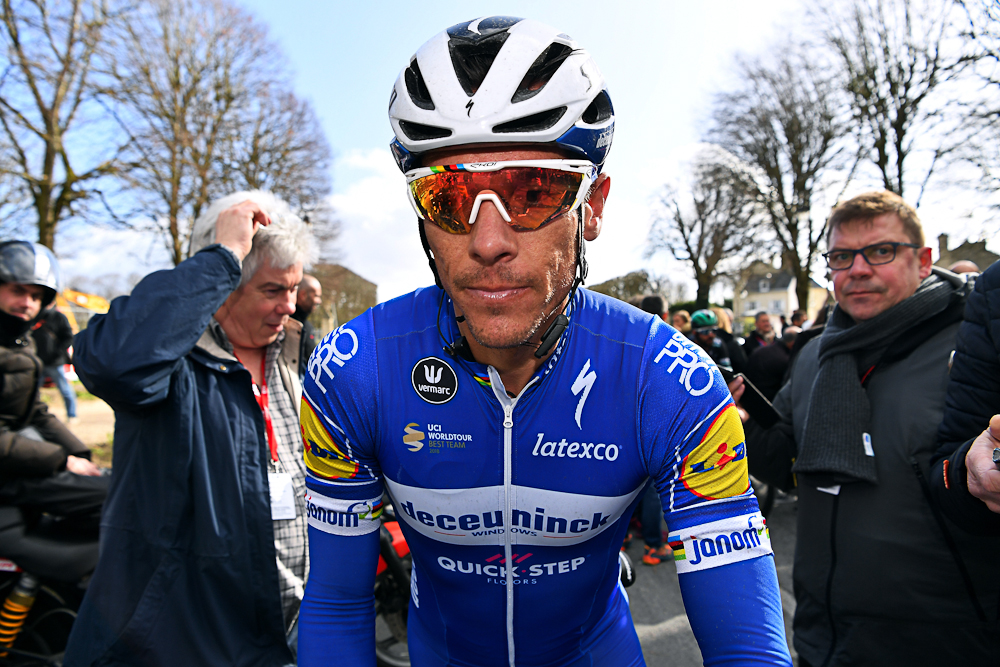
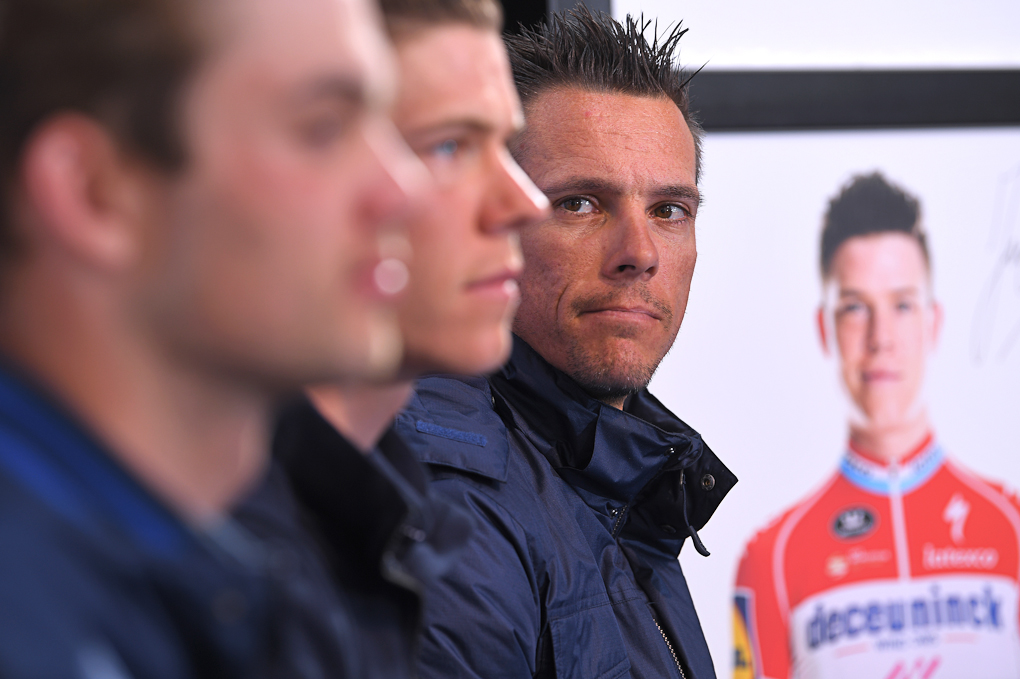
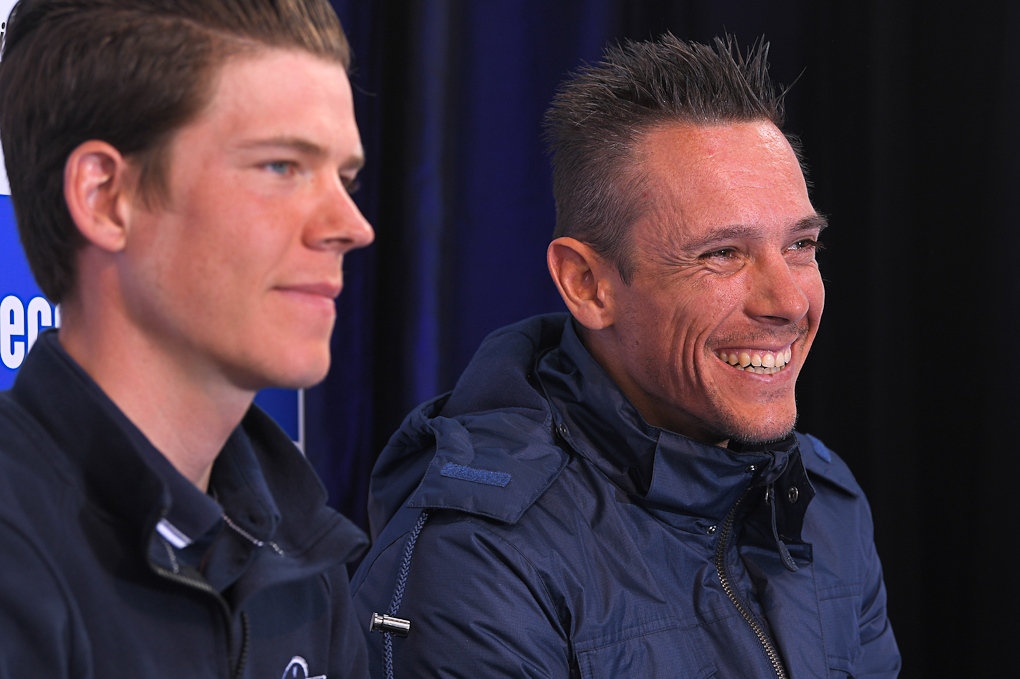
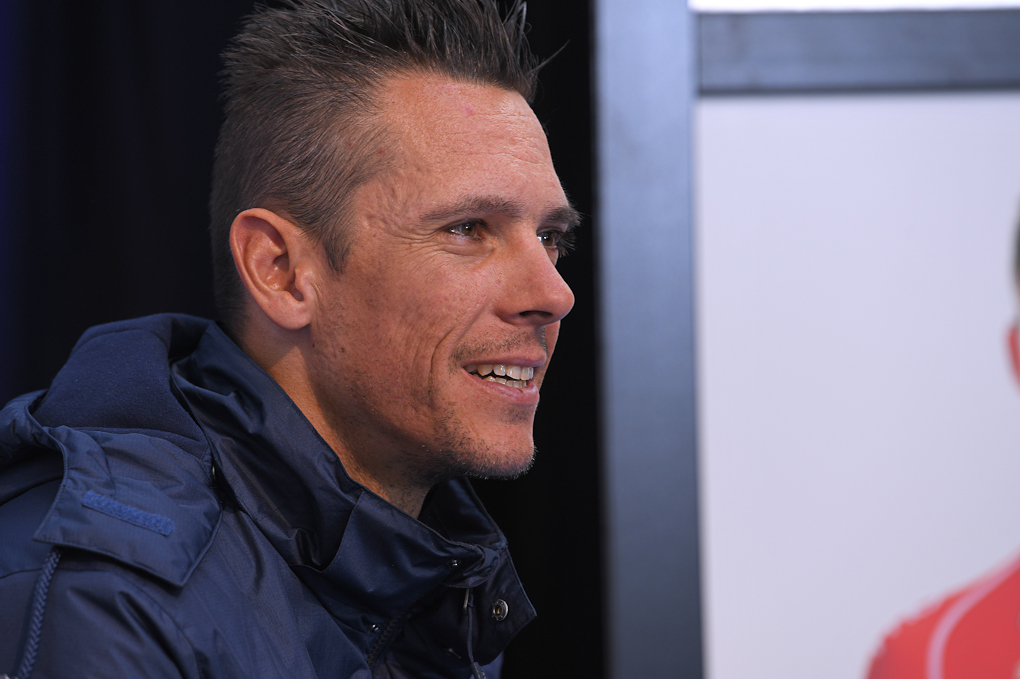
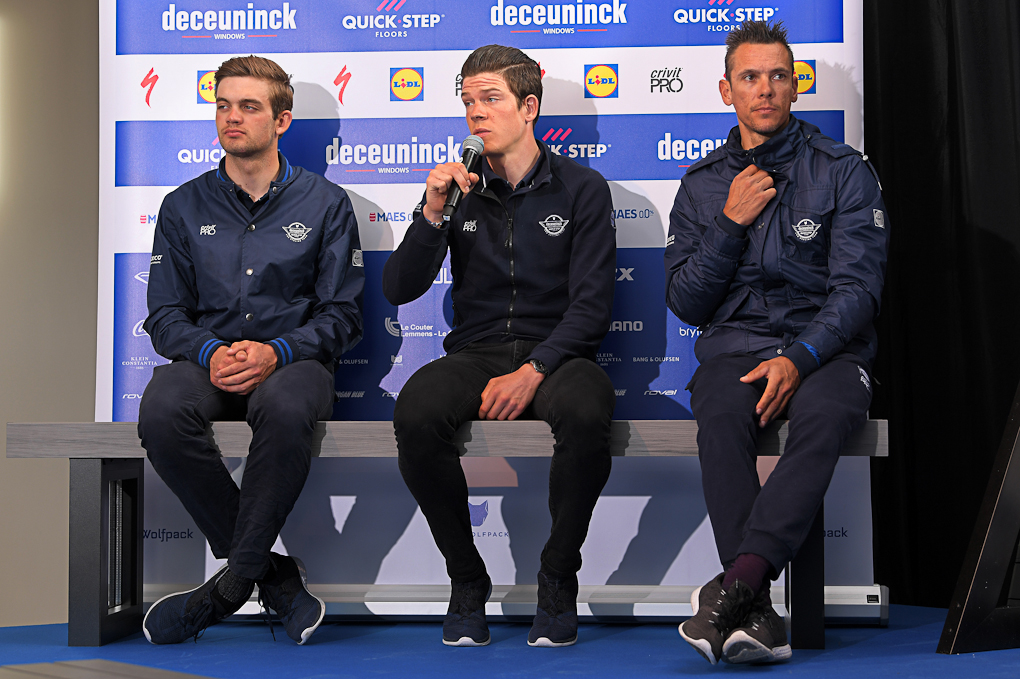
The stomach problems that forced Philippe Gilbert (Deceuninck-QuickStep) to abandon Dwars door Vlaanderen will not prevent him from lining out the Tour of Flanders on Sunday, but the Belgian conceded the illness is likely to impinge on his performance at the Ronde.
“It’s ok, but it’s never ideal to fall ill before a big objective,” Gilbert told reporters in Hooglede on Friday. “It’s not a big illness either, but personally I’ve never done a result in a big race when I’ve been ill in the days leading up to it. I don’t know, we’ll see. I’m not putting pressure on myself. There are two nights still to go, and a whole day, so we’ll see.”
Gilbert withdrew from Dwars door Vlaanderen with 40 kilometres or so remaining, having been stricken with a gastric issue on the eve of the race. The 36-year-old said that he was not concerned at missing out on additional miles this week – “Training doesn’t do much for you at this point” – and acknowledged that the illness would have an impact all the same. “I won’t be 100 percent on Sunday, but that’s how it is,” he said. “I can put it into perspective. You can't always control your health.”
Deceuninck-QuickStep have, however, controlled much of the running in the Classics so far this season, and Gilbert is part of a quartet of potential winners in the line-up for Sunday, alongside Bob Jungels, Yves Lampaert and Zdenek Stybar.
The team has already won Omloop Het Nieuwsblad, Kuurne-Brussel-Kuurne, Strade Bianche, Milan-San Remo and the E3 BinckBank Classic this season, though the sequence was interrupted at Gent-Wevelgem and Dwars door Vlaanderen. At Gent-Wevelgem, in particular, Deceuninck-QuickStep were forced onto the back foot by an early onslaught from Jumbo-Visma and Trek-Segafredo, though Gilbert downplayed the idea that the Tour of Flanders would be a battle between his team and the rest.
“We didn’t win everything, I think other teams have also won some races, and we saw last week that teams are also united, like Jumbo, Bahrain and UAE. They are also getting confidence and might ride differently,” Gilbert said. “We must ride smart. We have to keep it the same. We’ve been winning because we are honest with each other, that’s a reason why we can be so successful during the season.”
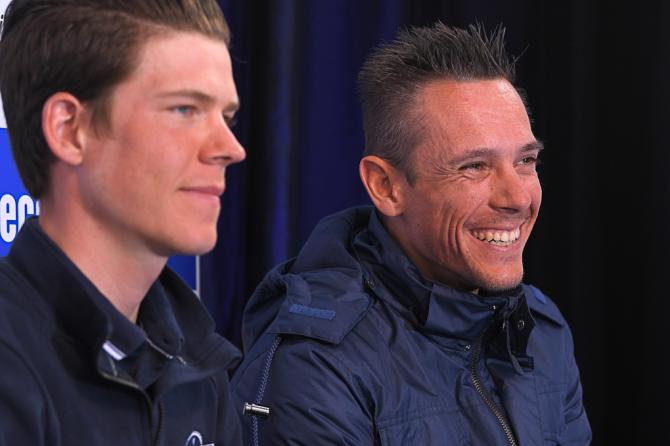
Jungels and Gilbert at the Deceuninck-QuickStep press conference on Friday (Getty Images)
Get The Leadout Newsletter
The latest race content, interviews, features, reviews and expert buying guides, direct to your inbox!
Jungels
A dramatic solo winner of the Ronde in 2017, Gilbert played a pivotal supporting role a year ago, smothering the life out of the chase behind teammate Niki Terpstra before helping himself to third place in Oudenaarde. Terpstra has since departed for Direct Energie, with muted results to date, while his berth in the QuickStep cobbled Classics unit has been filled ably by Jungels.
Like Terpstra, Jungels is a strong rouleur with the ability to attack – and stay away – from distance, but Gilbert smilingly suggested that, in some respects at least, the Luxembourger was not exactly a like-for-like replacement.
“Bob is a lot calmer and more respectful of the team et cetera. He’s easier to manage,” Gilbert said. And Terpstra? “It wasn’t easy. It was different.”
Winner of Liège-Bastogne-Liège a year ago, Jungels was drafted into duty on the cobbles this season for the first time as a professional. Underage success at Paris-Roubaix showcased his potential on the pavé, but his first taste of Flemish racing has exceeded external expectations.
After winning Kuurne-Brussel-Kuurne, Jungels teed up Stybar’s Harelbeke victory with a fine solo raid and showed his strength again at Dwars door Vlaanderen on Wednesday. Though a Ronde debutant, Jungels is among the consensus favourites. Gilbert believes his teammate has the power to win the Ronde, but noted that, unlike in Liège, the strongest man does not necessarily prevail here.
“It’s a lot easier to win Liège, that’s for sure, because the Tour of Flanders is a very technical race,” he said. “You can be in a position to win it on several occasions and not do so, because riders always have a chance to come back. Liège is all about strength in the finale, it’s not a technical race at all. In Flanders you can attack with 80km to go, but you’re never sure of winning.”
Jungels’ victory in Liège came after an 18km solo effort from the top of the Côte de la Roche-aux-Faucons, and Gilbert evinced confidence that he could tailor that kind of attack to the specific challenges of the Tour of Flanders.
“He showed that at Kuurne when he went for it. I heard some of the commentary where they said Bob hadn’t a chance when he attacked from the break, and he ended up winning. Nobody could catch him,” Gilbert said. “On TV, Bob gives the impression that he’s going easy, but he gives the impression that he’s not going fast, but when he’s on the bike, he’s going very, very fast.”

Barry Ryan was Head of Features at Cyclingnews. He has covered professional cycling since 2010, reporting from the Tour de France, Giro d’Italia and events from Argentina to Japan. His writing has appeared in The Independent, Procycling and Cycling Plus. He is the author of The Ascent: Sean Kelly, Stephen Roche and the Rise of Irish Cycling’s Golden Generation, published by Gill Books.